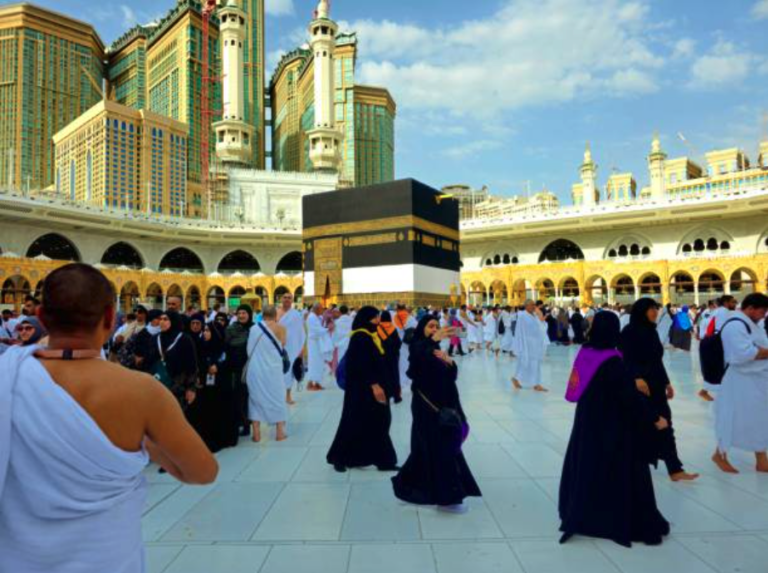A Beginner’s Guide to Islamic Theology and Belief
Have you ever thought about the depth of Islamic faith? It impacts over 1.8 billion people worldwide. This guide explores the heart of Muslim beliefs and Islamic spirituality. It shows how monotheism has shaped cultures globally.
Islam’s reach is vast, from Pakistan to Indonesia, and from Nigeria to Turkey. Ninety percent of Muslims are Sunni, and 10% are Shia. In the UK, young Muslims are blending British identity with Islamic heritage.
This beginner’s guide covers Islamic theology’s core. It talks about Tawhid (God’s oneness) and the balance between divine decree and human free will. We’ll look at the Quran’s teachings on these beliefs, offering insights into the Muslim spiritual journey.
If you’re curious about Islamic spirituality or want to understand Muslim beliefs, this guide is for you. It’s a friendly introduction to a faith that influences our world.
Key Takeaways
- Islam is followed by approximately 1.8 billion people globally
- The guide covers essential topics like Tawhid, Prophethood, and the Afterlife
- Sunni Islam represents about 90% of Muslims worldwide
- The Quran provides verses on divine decree and human free will
- Islamic faith embraces diverse cultures and ethnicities
- Young British Muslims are bridging Islamic traditions with modern identity
The Origins of Islam: Prophet Muhammad’s Journey
Islamic history starts with Prophet Muhammad, born in Mecca around 570 A.D. He was from the powerful Quraish tribe, which managed trade routes in Arabia. Muhammad’s early life set the stage for his role as the last prophet in Islamic tradition.
The Birth and Early Life of Prophet Muhammad
Muhammad’s childhood was tough. He lost his parents early and was raised by his grandfather and then his uncle. Despite the challenges, he became known for his honesty and wisdom in Mecca.
The First Revelation and the Beginning of Islam
At 40, Muhammad had his first divine revelation in the Hira Cave. This event started Islam. He preached monotheism, but faced opposition from Mecca’s leaders who believed in many gods.
The Spread of Islam in Mecca and Medina
After 13 years in Mecca, Muhammad and his followers moved to Medina in 622. This journey, known as the Hijra, started the Islamic calendar. In Medina, Muhammad created the first Islamic state and kept spreading his message.
“The best among you are those who have the best manners and character.” – Prophet Muhammad
After Muhammad died in 632, the Islamic community divided into Sunni and Shi’i sects. Sunnis respect all four caliphs, while Shi’is see Ali as the first leader. Today, Sunnis are more numerous worldwide, but both groups influence Islamic beliefs and practices.
Fundamental Beliefs in Islamic Theology
Islamic faith is built on key beliefs that guide its followers. At its core is Monotheism, the belief in one God, Allah. This belief is crucial for Muslims and influences every part of their lives.
The Quran, Islam’s holy book, stresses Allah’s oneness. Chapter 112 says, “He is Allah, the One and Only.” This belief in a single, all-powerful God is a key part of Islamic teachings. Muslims also believe in Prophet Muhammad as God’s final messenger.
Prophetic traditions are important in Islamic beliefs and practices. These traditions, known as Hadith, offer guidance on living a righteous life. They cover many areas of life, from personal behavior to social interactions.
- Belief in angels
- Faith in divine books
- Acceptance of all prophets
- Belief in the Day of Judgment
- Divine Decree
These core beliefs are at the heart of Islamic theology. They help Muslims on their spiritual journey and guide them through life’s challenges. With over 1.2 billion followers, Islam continues to influence millions, offering a path of righteousness and devotion to Allah.
The Five Pillars of Islam: Core Practices
The Pillars of Islam are the basics of Muslim life. They guide believers on their faith journey. These practices shape their daily routines.
Shahada: Declaration of Faith
The Shahada is the first step into Islam. Muslims say it during big life moments, like when they convert. It shows they believe in one God and Muhammad as His messenger.
Salah: Daily Prayers
Salah includes five daily prayers: Fajr, Dhuhr, Asr, Maghrib, and Isha. These prayers help Muslims stay disciplined and mindful. They involve physical actions and recitations.
Zakat: Obligatory Charity
Zakat means giving 2.5% of what you have to those who need it. It’s about helping others and showing kindness. It’s a key part of Islam’s spirit of generosity.
Sawm: Fasting During Ramadan
During Ramadan, Muslims fast from dawn to sunset. This month helps them grow spiritually and learn self-control.
Hajj: Pilgrimage to Mecca
Hajj is a must for Muslims who can afford it. It’s a time when millions come together in Mecca. It’s about unity and following Allah’s will.
These Pillars guide Muslims in their spiritual lives. They help balance faith with everyday tasks. Muslims often talk to their bosses about prayer breaks and time off for Islamic holidays.
The Quran: The Holy Book of Islam
The Quran is the heart of Islam, loved by Muslims everywhere. It has 114 chapters, or surahs, each with its own length and theme. With 6,236 verses, it talks about faith, ethics, social issues, and history.
Quranic teachings fall into two groups. The 86 Meccan chapters deal with faith and the afterlife. The 28 Medinan chapters cover the social life and growth of Muslims. This shows how Islamic teachings evolved as the faith grew.
The Quran is organized for easy study and recitation. It’s split into 30 parts, called juz’, for a month-long reading in Ramadan. Many Muslims try to read the Quran fully during Ramadan to connect with God’s word.
- Shortest chapter: Al-Kawthar (3 verses)
- Longest chapter: Al-Baqara (286 verses)
- Original Arabic text unchanged since 7th century C.E.
Even though Arabic is the Quran’s original language, about 90% of Muslims don’t speak it. This has led to translations in many languages. This way, more people can understand the Quran’s teachings. Reciting the Quran together is a special tradition for Muslims.
Islamic Jurisprudence and Sharia Law
Islamic jurisprudence is key to the Muslim legal system. It combines many subjects, like theology and logic, with Quranic studies. The word ‘fiqh’ means understanding, showing its aim to make laws from detailed evidence.
Sources of Islamic Law
Sharia law comes from the Quran and Sunnah. The Quran is Allah’s word, the base. The Sunnah, Muhammad’s teachings, guides us. Ijma’ and Qiyas also play roles in Islamic law.
The Four Schools of Sunni Jurisprudence
Sunni Islam has four main schools: Hanafi, Maliki, Shafi’i, and Hanbali. Each school has its own way of understanding Islamic law. They developed between 610 C.E. and 1,000 C.E., shaping Islamic legal thought.
Application of Sharia in Modern Times
In today’s world, Sharia law is applied differently. Some countries use it in their laws, while others follow secular laws. Islamic law aims to protect faith, justice, and more. It tries to balance old values with new needs.
Islamic Schools of Thought and Denominations
Islam is the second-largest religion worldwide, with a rich variety of beliefs and practices. The Muslim community is diverse, with different schools of thought and denominations. This shows the dynamic nature of Islamic theology and law.
Sunni Islam is the largest part of the faith. It has four main legal schools: Ḥanafī, Mālikī, Shāfiʿī, and Ḥanbalī. Each school is named after its founder and has its own way of interpreting Islamic law. For example, the Ḥanafī school is linked to Yaʿqūb b. Ibrāhīm al-Anṣārī and Muḥammad b. al-Ḥasan al-Shaybānī.
Shia Islam is the second-largest branch. Shia Muslims have their own legal traditions and theological views. The split between Sunni and Shia started after Prophet Muhammad’s death due to historical and political reasons.
There are also smaller groups like Sufism, Ibadism, and Ahmadiyya within Islam. Each group adds to the rich diversity of Muslim beliefs, offering unique views on Islamic spirituality and practice.
“Islam’s basic egalitarianism… attracted rapid converts.”
Even with their differences, all Muslims believe in one God and Muhammad’s prophethood. This unity in diversity shows the strength and adaptability of Islamic faith over time and across cultures.
Islamic Philosophy and Its Influence
Islamic philosophy started when Muslims discovered works from Greek, Persian, and Indian traditions. This rich background shaped Islamic thought. It still influences today’s Muslim philosophers.
Early Islamic Philosophers and Their Contributions
Al-Kindi and Al-Razi were key in blending Greek philosophy with Islam. Al-Farabi, known as the “Second Teacher,” organized Greek philosophy for Muslims. The Ikhwan al-Safa, including Al-Maqdisi and al-Majriti, expanded Islamic knowledge with their works.
The Harmony of Reason and Faith in Islamic Thought
Islamic philosophy aimed to unite reason and faith. Al-Ghazali’s “Tahafut al-Falasifah” started a big debate. Scholars like al-Juwayni and al-Baqillani also joined the discussion.
Ibn Arabi and al-Hallaj mixed philosophy with Sufism. This added depth to Islamic thought.
Contemporary Islamic Philosophy
Today, Islamic philosophy tackles new challenges and rethinks old ideas. Prof SMNA al-Attas and Muhammad Iqbal have made big contributions. Majid Fakhry’s “Islamic Philosophy: A Beginner’s Guide” (2009) is a great resource.
“Islamic philosophy continues to evolve, addressing modern challenges and reinterpreting classical concepts in light of current knowledge and societal needs.”
This 224-page guide covers Islamic philosophical thought. It’s perfect for those wanting to learn about Muslim philosophers and Islamic intellectualism.
Islamic Spirituality and Mysticism
Islamic spirituality explores the deep world of mysticism, guiding believers to connect with the divine. At its core is Sufism, a mystical part of Islam focusing on inner change and direct God experience.
Sufism uses many spiritual practices to purify the heart and get closer to God. These include dhikr (remembering God), meditation, and spiritual retreats. The aim is to go beyond the ego and unite deeply with the Divine.
Islamic mysticism has greatly influenced world literature. Poets like Rumi and Hafez mixed mystical themes with love and divine inspiration. Their poetry introduced ideas of transcendent love, unity with God, and seeking deeper understanding. These ideas have touched literature far beyond the Islamic world.
“The wound is the place where the Light enters you.” – Rumi
Important figures in Islamic mysticism include Al-Ghazali and Ibn Arabi. Al-Ghazali chose Sufism over philosophy, while Ibn Arabi wrote about the unity of existence. Their work has shaped Islamic spirituality, offering deep insights into reality and the human soul.
While some Muslims are skeptical of Sufism, many see it as a way to deepen their spiritual bond. Sufi teachings have also influenced Islamic art, music, and culture. This has enriched the Islamic tradition with a rich spiritual expression.
Conclusion: Understanding the Essence of Islamic Faith
Islamic theology is at the heart of Muslim beliefs and practices. It began with Prophet Muhammad ﷺ, born in Mecca in 571 AD. At 40, he received his first revelation in the Hira Cave, starting Islam.
The faith grew fast, with key moments like the Hijra to Madinah and the Battle of Badr. These events shaped its early days.
The Five Pillars are the core of Islamic practices. They include faith declaration, daily prayers, charity, fasting in Ramadan, and the Hajj pilgrimage. These pillars, along with tawhid (Allah’s oneness), are the base of Muslim life.
The Qur’an, Islam’s holy book, teaches monotheism and guides followers. It helps them know right from wrong.
Islamic theology aims for unity among people, rejecting discrimination. It teaches to submit to Allah and follow His messengers. The Shari’ah, or Islamic code, guides Muslims through life’s challenges.
By understanding these points, one can see the heart of Islamic faith. It’s a complete way of life that balances the spiritual, intellectual, and practical sides.
Source Links
- Demystifying Aqidah: A Beginner’s Guide to Islamic Theology — Islamic Light
- A Beginner’s Guide to Islam
- The Prophet Muhammad and the Origins of Islam
- The Life Of The Prophet Muhammad (PBUH)
- Islam: Basic Beliefs
- Chapter 1: Islamic Beliefs and Teachings
- Five Pillars of Islam to Know for Intro to Islamic Religion
- Understanding the Five Core Pillars of Islam: A Beginner’s Guide
- Understanding the Five Pillars of Islam: A Beginner’s Guide | SchoolTube
- A Brief Introduction to the Quran, the Holy Book of Islam
- Islamic Book; Quran in English; The Sacred Path to the Religion of Islam
- Foundations and Principles: An Introduction to Islamic Jurisprudence & A Brief Comparison to American Jurisprudence
- Appreciating Scholarship: Intro to Islamic Law – Tesneem Alkiek | Yaqeen in NY | Yaqeen Institute for Islamic Research
- What is a Madhhab? Exploring the Role of Islamic Schools of Law | Yaqeen Institute for Islamic Research
- Islam: Teaching the Basics – TeachMideast
- Islam | Religion, Beliefs, Practices, & Facts | Britannica
- Islamic Philosophy : A Beginner’s Guide by Majid Fakhry (2009, Trade Paperback) for sale online | eBay
- Islamic Philosophy: A Beginner’s Guide
- Mysticism – (Islamic World) – Vocab, Definition, Explanations | Fiveable
- Mysticism in Arabic and Islamic Philosophy
- Understanding Islam – A Beginner’s Guide
- Islam: Basic Principles and Characteristics







